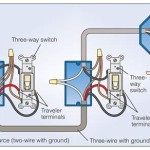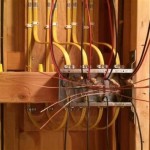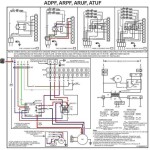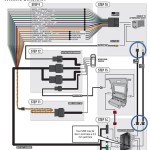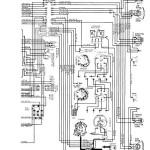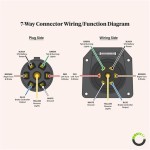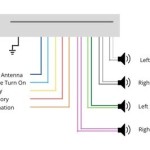Marine wiring connectors, a crucial component in marine electrical systems, are specialized devices designed to securely connect wires in harsh marine environments. These connectors ensure reliable electrical connections while withstanding the challenges of salt water, moisture, and vibrations. An example is the Anderson Powerpole connector, widely used in marine applications for its durability and ease of installation.
Marine wiring connectors play a vital role in maintaining safe and efficient electrical systems on boats and ships. They prevent short circuits, voltage drops, and other electrical hazards that could lead to equipment damage or even personal injury. The development of waterproof and corrosion-resistant connectors has been a critical historical advancement that has greatly improved the reliability of marine electrical systems.
This article explores the different types of marine wiring connectors, their construction, and application considerations. It also discusses industry standards, safety regulations, and best practices for the selection and installation of these connectors. By providing a comprehensive understanding of marine wiring connectors, this article aims to assist professionals in creating safe and reliable electrical systems for marine vessels.
Marine wiring connectors are crucial components in marine electrical systems, ensuring safe and reliable electrical connections in harsh marine environments. Key aspects related to marine wiring connectors include:
- Durability: Marine wiring connectors must withstand extreme conditions, including salt water, moisture, vibrations, and temperature fluctuations.
- Reliability: They must maintain secure electrical connections under all operating conditions to prevent short circuits and voltage drops.
- Corrosion resistance: Marine wiring connectors are exposed to corrosive salt water environments, so they must be made of corrosion-resistant materials.
- Waterproofing: They must be waterproof to prevent electrical failures caused by water intrusion.
- Safety: Marine wiring connectors must meet industry safety standards to ensure they do not pose electrical hazards.
- Ease of installation: They should be easy to install, even in confined spaces on boats and ships.
- Variety: Marine wiring connectors come in a variety of types and sizes to meet different application requirements.
- Cost: Cost is an important consideration when selecting marine wiring connectors.
- Availability: Marine wiring connectors should be readily available from reputable suppliers.
- Industry standards: Marine wiring connectors should conform to industry standards, such as those set by the American Boat & Yacht Council (ABYC).
These key aspects interconnectedly influence the performance and reliability of marine wiring connectors. Durability and corrosion resistance ensure long-lasting operation in harsh marine environments. Reliability and safety are paramount to prevent electrical hazards and ensure the safe operation of marine electrical systems. Waterproofing prevents electrical failures caused by water intrusion. Ease of installation simplifies maintenance and repair tasks. Variety allows for customization based on specific application requirements. Cost and availability are practical considerations for selecting and procuring marine wiring connectors. Conformance to industry standards ensures compliance with safety regulations and best practices.
Durability
In the context of marine electrical systems, durability is a critical aspect of wiring connectors. These connectors must endure harsh marine environments characterized by salt water, moisture, vibrations, and temperature fluctuations. Durability ensures reliable electrical connections, prevents system failures, and enhances the overall safety and performance of marine vessels.
- Corrosion Resistance: Marine wiring connectors are exposed to salt water and moisture, which can cause corrosion and degrade their performance. Durable connectors are made of corrosion-resistant materials, such as stainless steel or marine-grade aluminum, to withstand these harsh conditions.
- Vibration Resistance: Boats and ships experience constant vibrations due to engine operation and wave motion. Durable connectors are designed to withstand these vibrations without loosening or compromising the electrical connection.
- Temperature Resistance: Marine environments can experience extreme temperature variations. Durable connectors are designed to operate reliably within a wide temperature range, ensuring stable electrical connections in both hot and cold conditions.
- Impact Resistance: Marine wiring connectors may be subjected to impacts from tools, equipment, or accidental drops. Durable connectors are constructed to withstand these impacts without cracking or breaking, maintaining electrical integrity.
The durability of marine wiring connectors is essential for ensuring the reliability and safety of marine electrical systems. Durable connectors prevent electrical failures, reduce maintenance costs, and enhance the longevity of marine vessels. By understanding the various facets of durability, engineers and technicians can select and install marine wiring connectors that meet the specific demands of each application, ensuring optimal performance and long-term reliability.
Reliability
Reliability is a crucial aspect of marine wiring connectors. These connectors must maintain secure electrical connections under all operating conditions, including vibration, moisture, and temperature fluctuations, to prevent short circuits and voltage drops. Failure to do so can lead to electrical system failures, equipment damage, and even safety hazards.
- Contact Design: Marine wiring connectors are designed with robust contacts that ensure a secure connection between wires. These contacts are typically made of corrosion-resistant materials and feature multiple contact points to maintain electrical continuity even under extreme conditions.
- Insulation: Proper insulation is crucial to prevent short circuits. Marine wiring connectors use high-quality insulation materials that can withstand harsh marine environments and prevent current leakage.
- Strain Relief: Strain relief mechanisms prevent excessive force from being applied to the electrical connections, which can lead to loose connections or damage to the wires. Marine wiring connectors incorporate strain relief designs, such as backshells or boots, to protect the connection point.
- Environmental Sealing: Marine wiring connectors are designed to be watertight and dustproof. They feature seals and gaskets to prevent the ingress of moisture and contaminants, which can lead to corrosion and electrical failures.
By incorporating these design considerations, marine wiring connectors maintain secure electrical connections under all operating conditions, ensuring the reliable operation of electrical systems on boats and ships. They prevent short circuits, voltage drops, and other electrical hazards, contributing to the safety and efficiency of marine vessels.
Corrosion resistance
Corrosion resistance is a vital aspect of marine wiring connectors due to their exposure to harsh marine environments. Corrosion can degrade the performance of these connectors, leading to electrical failures and compromised safety. To ensure reliable operation, marine wiring connectors are constructed using corrosion-resistant materials and incorporate design features that minimize the effects of corrosion.
- Material Selection: Marine wiring connectors are typically made of corrosion-resistant materials such as stainless steel, brass, or marine-grade aluminum. These materials are highly resistant to the corrosive effects of salt water and other marine elements.
- Plating and Coatings: In addition to the base material, marine wiring connectors may be plated or coated with protective materials such as nickel, tin, or zinc. These coatings provide an additional layer of protection against corrosion and enhance the durability of the connectors.
- Sealed Connections: Marine wiring connectors are designed with sealed connections to prevent the ingress of moisture and contaminants. This helps prevent corrosion from forming at the connection points, ensuring reliable electrical performance.
- Regular Maintenance: Regular maintenance, including cleaning and inspection of marine wiring connectors, is crucial to extend their lifespan and prevent corrosion buildup. Proper maintenance practices help identify and address any potential corrosion issues before they become significant problems.
By employing corrosion-resistant materials and design features, marine wiring connectors maintain their integrity and functionality in corrosive marine environments. This ensures the reliable operation of electrical systems on boats and ships, contributing to the safety and efficiency of marine vessels.
Waterproofing
Waterproofing is a critical aspect of marine wiring connectors, as they operate in harsh marine environments where exposure to water is inevitable. Water intrusion can lead to electrical failures, compromising the functionality and safety of electrical systems on boats and ships. To ensure reliable operation, marine wiring connectors incorporate various waterproofing measures to prevent water from penetrating and causing electrical issues.
- Gaskets and Seals: Marine wiring connectors utilize gaskets and seals made of waterproof materials such as rubber or silicone to create a watertight seal around the connection points. These seals prevent water from entering the connector, ensuring the integrity of the electrical connection.
- Encapsulation: Some marine wiring connectors are encapsulated in a waterproof material, such as epoxy or polyurethane. This encapsulation completely seals the connector, preventing water from reaching the electrical contacts and components.
- Waterproof Housing: Marine wiring connectors may have a waterproof housing made of durable materials like stainless steel or plastic. This housing protects the internal components from water ingress, even in submerged conditions.
- IP Rating: Marine wiring connectors are often rated according to their Ingress Protection (IP) rating, which indicates their level of protection against water and dust. A higher IP rating signifies a greater degree of protection against water intrusion.
By incorporating these waterproofing measures, marine wiring connectors ensure reliable electrical connections in wet and humid environments. They prevent water-related failures, contributing to the safety and efficiency of marine electrical systems and the overall performance of boats and ships.
Safety
Safety is paramount in marine electrical systems, where improper wiring can lead to electrical fires, equipment damage, and even personal injury. Marine wiring connectors play a crucial role in ensuring safety by meeting industry standards and undergoing rigorous testing to guarantee they do not pose electrical hazards.
Industry safety standards, such as those set by the American Boat & Yacht Council (ABYC), establish guidelines for the design, construction, and testing of marine wiring connectors. These standards specify requirements for materials, insulation, current carrying capacity, voltage ratings, and environmental protection. By adhering to these standards, manufacturers ensure that marine wiring connectors are safe and reliable for use in marine electrical systems.
Real-life examples of the importance of safety in marine wiring connectors abound. Faulty or non-compliant connectors can overheat, leading to electrical fires. Poor insulation can result in electrical shocks or short circuits. Corrosion can degrade connections, increasing the risk of electrical failures. By meeting industry safety standards, marine wiring connectors help prevent these hazards, ensuring the safe operation of marine electrical systems.
Understanding the connection between safety and marine wiring connectors is crucial for anyone involved in the design, installation, or maintenance of marine electrical systems. It emphasizes the importance of using high-quality, industry-compliant connectors to safeguard against electrical hazards. This understanding also guides decision-making processes, ensuring that safety is prioritized in the selection and application of marine wiring connectors.
Ease of installation
In the context of marine electrical systems, ease of installation is a crucial aspect of marine wiring connectors. Confined spaces, limited access, and challenging working conditions are common in boat and ship environments. Connectors that are easy to install can significantly reduce the time and effort required for electrical installations and maintenance, leading to cost savings and improved efficiency.
- Compact Design: Marine wiring connectors are often designed to be compact and space-saving, making them suitable for installation in tight areas. They may feature slim profiles or low-profile housings to fit in spaces.
- Quick-Connect Mechanisms: Quick-connect mechanisms, such as push-in or lever-action connectors, allow for fast and tool-less installation. These connectors eliminate the need for complex wiring or soldering, reducing installation time.
- Color Coding and Labeling: Color-coded connectors and clear labeling help identify and differentiate different wires, simplifying the installation process and reducing the risk of errors.
Easy-to-install marine wiring connectors contribute to efficient electrical system design, maintenance, and troubleshooting. They enable faster and more convenient installations, particularly in confined spaces onboard vessels. By reducing installation time and simplifying the process, these connectors enhance the overall productivity and safety of electrical work on boats and ships.
Variety
The variety of marine wiring connectors available caters to the diverse needs of marine electrical systems. These connectors come in various types and sizes, each designed for specific applications and environments, ensuring reliable and efficient electrical connections in demanding marine conditions.
- Connector Types: Marine wiring connectors encompass a range of types, including waterproof connectors, high-current connectors, and specialized connectors for specific equipment or systems. Each type is designed to meet the unique requirements of its intended application.
- Wire Sizes: Marine wiring connectors accommodate different wire sizes, from small-gauge wires used for low-power applications to heavy-duty cables for high-current systems. Matching the connector to the wire size ensures proper current carrying capacity and prevents overheating or damage.
- Environmental Considerations: Marine wiring connectors are designed to withstand the harsh marine environment, including exposure to salt water, moisture, and extreme temperatures. Connectors with specialized materials, such as corrosion-resistant metals or high-temperature insulation, are available for different environmental conditions.
- Industry Standards: Marine wiring connectors adhere to industry standards, such as those set by the American Boat & Yacht Council (ABYC), to ensure safety, reliability, and compatibility with marine electrical systems. Meeting these standards guarantees that connectors meet specific performance and quality requirements.
The variety of marine wiring connectors available empowers designers, installers, and maintenance personnel to select the most suitable connectors for each application. By matching the connector type, wire size, environmental considerations, and industry standards to the specific requirements of the marine electrical system, they can ensure optimal performance, safety, and longevity.
Cost
Cost is an important factor to consider when selecting marine wiring connectors because it directly impacts the overall cost of the electrical system and the vessel’s budget. Marine wiring connectors vary in price depending on their type, size, quality, and features. Understanding the cost implications of different connectors is essential for making informed decisions and optimizing the electrical system within budgetary constraints.
For instance, waterproof connectors designed for harsh marine environments tend to cost more than standard connectors due to their specialized materials and construction. However, investing in high-quality connectors can lead to long-term savings by reducing the risk of electrical failures, corrosion, and the need for costly repairs or replacements.
Understanding the cost-quality relationship of marine wiring connectors enables designers and installers to balance performance and affordability. By selecting cost-effective connectors that meet the specific requirements of the application, they can optimize the electrical system’s functionality and reliability without exceeding the budget.
Ultimately, considering the cost of marine wiring connectors is crucial for responsible financial management and ensuring the efficient operation of marine electrical systems. By carefully evaluating the cost implications and making informed decisions, professionals can create reliable and cost-effective electrical installations on boats and ships.
Availability
The availability of marine wiring connectors from reputable suppliers is a critical aspect of marine electrical system design, installation, and maintenance. When connectors are readily available, it ensures that projects can be completed efficiently and without delays caused by sourcing difficulties. Reputable suppliers provide reliable access to high-quality connectors that meet industry standards and safety regulations.
The importance of connector availability is evident in the practical applications of marine electrical systems. For instance, if a specific type of connector is required for a repair or upgrade but is not readily available, it can lead to project delays, increased costs, and potential safety hazards. Having access to a reliable supplier that stocks a wide range of marine wiring connectors helps mitigate these risks and ensures that electrical systems can be maintained and repaired promptly.
Furthermore, reputable suppliers often provide additional value beyond product availability. They may offer technical support, compatibility advice, and access to specialized connectors for unique applications. This level of support is invaluable for ensuring that the right connectors are selected for each application, leading to reliable and efficient electrical system performance.
In summary, the availability of marine wiring connectors from reputable suppliers is essential for the timely completion of projects, the maintenance of high-quality electrical systems, and the reduction of safety risks. By working with reliable suppliers, designers, installers, and maintenance personnel can ensure that they have access to the right connectors when they need them, contributing to the overall success and safety of marine electrical systems.
Industry standards
Industry standards play a crucial role in ensuring the safety, reliability, and performance of marine wiring connectors. By adhering to established standards, manufacturers and users can be confident that connectors meet minimum requirements for quality, safety, and compatibility. One prominent industry standard for marine wiring connectors is set by the American Boat & Yacht Council (ABYC). ABYC standards are widely recognized and respected in the marine industry, providing a benchmark for the design, construction, and testing of marine wiring connectors.
- Safety: ABYC standards prioritize safety by specifying requirements for insulation, current carrying capacity, and environmental protection. Connectors that meet ABYC standards are designed to minimize the risk of electrical fires, shocks, and other hazards.
- Reliability: ABYC standards ensure reliability by establishing guidelines for materials, construction, and testing. Connectors that meet these standards are built to withstand the harsh marine environment, including exposure to salt water, moisture, vibration, and temperature extremes.
- Compatibility: ABYC standards promote compatibility by defining standard connector types, sizes, and configurations. This ensures that connectors from different manufacturers can be used together, simplifying installation and maintenance.
- Testing: ABYC standards include rigorous testing requirements to verify the performance and durability of marine wiring connectors. Connectors that pass these tests are certified to meet ABYC standards, providing assurance of quality and reliability.
Conformance to industry standards, such as those set by ABYC, is essential for ensuring the safety, reliability, and compatibility of marine wiring connectors. By adhering to these standards, manufacturers and users can be confident that connectors meet the highest levels of quality and performance, contributing to the safe and efficient operation of marine electrical systems.










Related Posts


